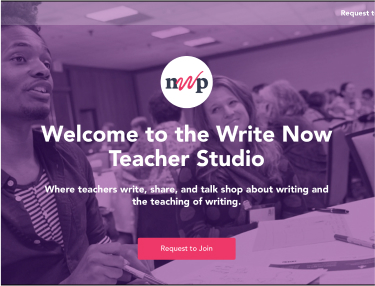Discover Content
Results for “Try This”
MAPS Planner for Writing to a Public Audience
The MAPS planner, inspired by the work of Dawn Reed and Troy Hicks, was created as part of a collection of resources for NWP's College, Career, and Community Writers Program (C3WP). The planner is designed to support students in thinking about the specific rhetorical situation for going…
Collection

Teachers Writing for Civic Engagement
A guide for beginning or restarting a writing practice for teachers created by teachers of the Chicago Area Writing Project. Includes small and low-tech writing tasks that build over time along with examples to mentor and inspire.
Have Students Set Their Own Writing Goals
For teachers, it's vital to guide students in setting their own writing goals, promoting independence and self-reliance. Strategies like vision boards, goal-setting journals, and one-on-one conferences foster engagement and higher achievement in writing. Supporting individual goals alongside…
Four Fresh Ways of Looking at the Bell Ringer
The 'bell ringer' is one of the most common pedagogical tools. In this resource, Tanya Baker investigates ideas from the blog Metawriting by Morehead Writing Project director Deanna Mascle (aka the writing evangelist). Deanna believes everyone is and should be a writer, and her use of bell…
Foster a "culture of creativity" with these 826 Digital Resources
This holiday season, explore curated lessons from 826 Digital that spark creativity in young writers and their teachers.
Rethinking Field Trips
In San Diego, teachers and museum educators joined forces to create a new model for museum field trips—one that pleased students, teachers, and museum curators alike. Read this post to learn about their different kind of field trip and to access field trip resources.
The Writer’s Memo
A writer’s memo helps to shift the responsibility for the writer’s growth from the teacher to the writer themself, promoting self-reliance, independence, and autonomy.
Write Now Teacher Studio

Where teachers write, share, and talk shop about writing and the teaching of writing
Hosted by the National Writing Project, the Write Now Teacher Studio is an open, online community of educators for educators. It’s a place to write together, examine our teaching, create and refine curricula, and work toward ever more effective and equitable practices to create confident, creative, and critical thinkers and writers in our classrooms and courses.

